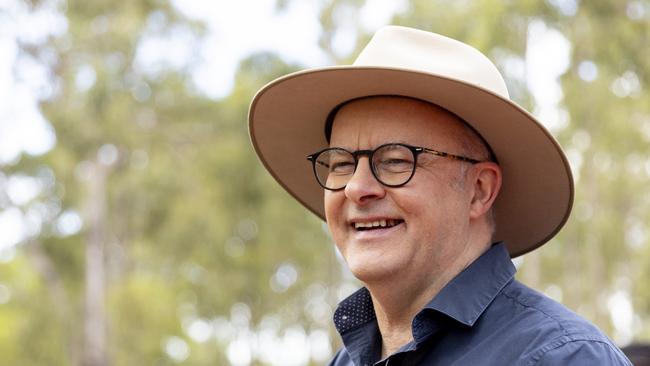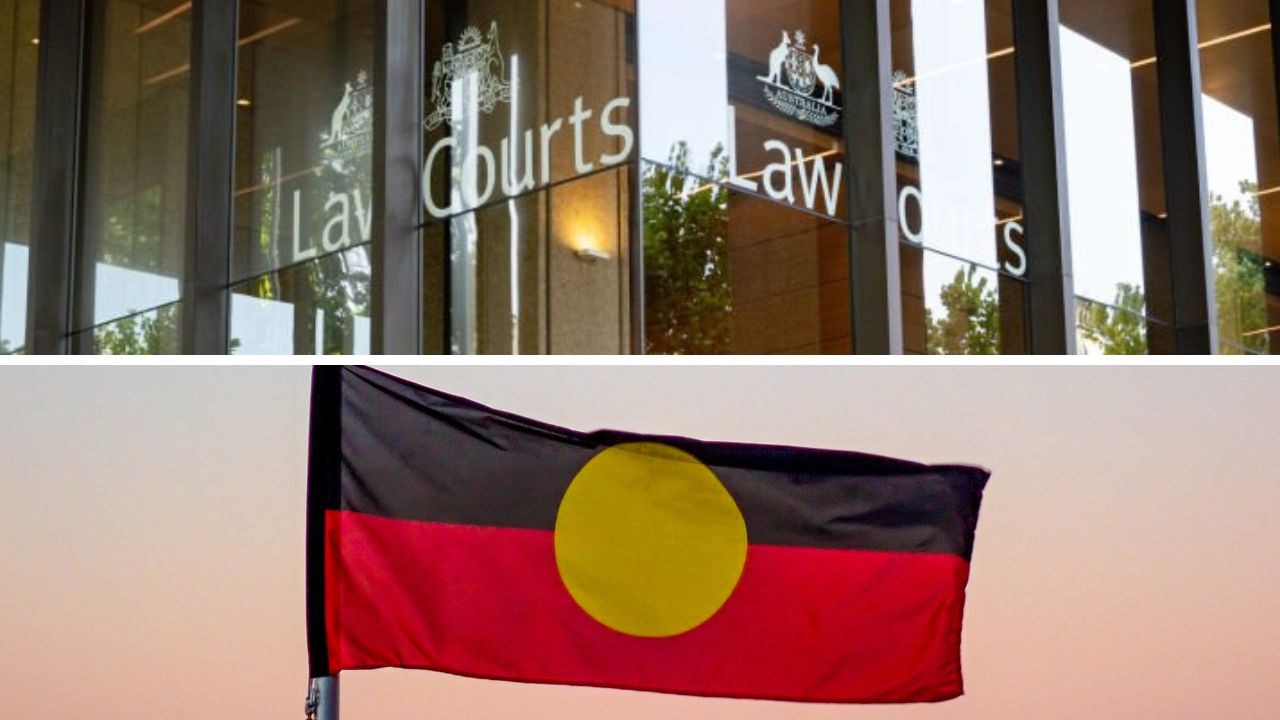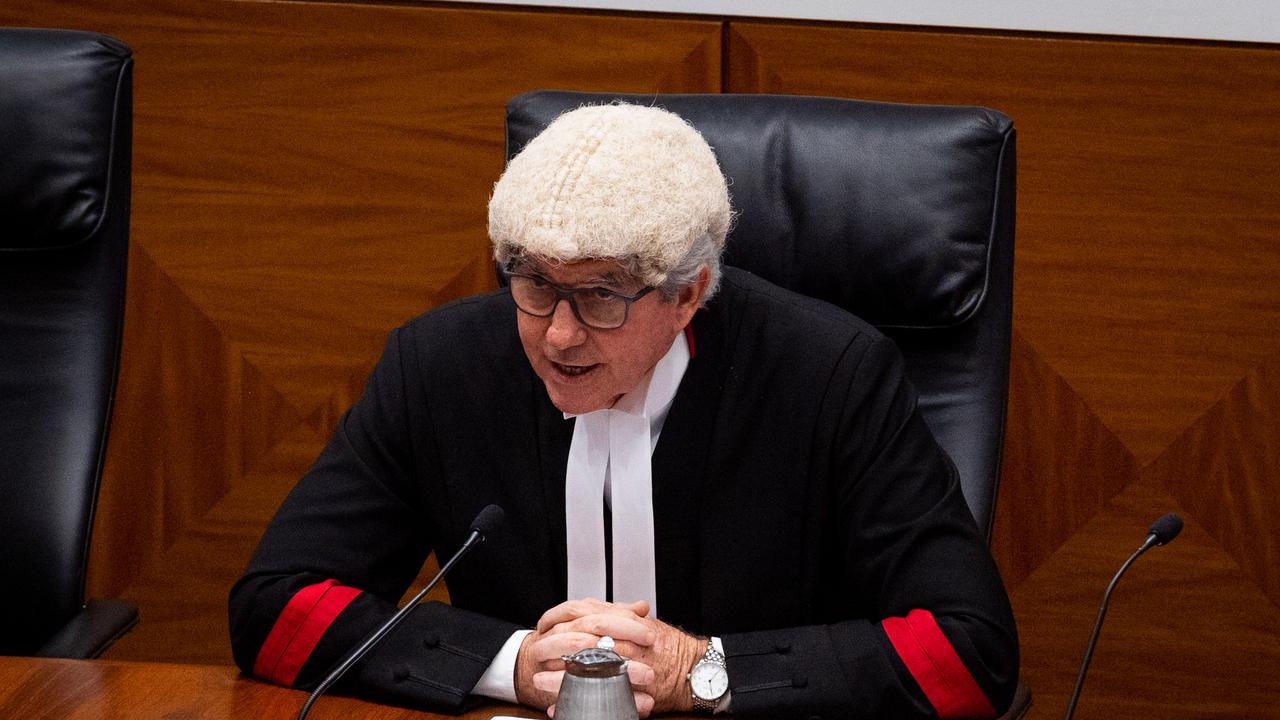
Following the voice referendum, which was scorched in a blaze of political misjudgment last October, the feeling of betrayal will run deep.
This as perhaps as much due to naivety as Labor’s political timidity. Having failed to deliver what it had promised and being politically damaged by the experience, Labor crawled into a hole on Indigenous policy.
The prospect of the government pursuing the rest of the Uluru Statement from the Heart was one of diminished hope at best.
The problem for Albanese is that in trying to get the issue off the election table, he only half-killed his commitment to a Makarrata commission.
Co-chair of the Uluru Statement, Pat Anderson, who until now had been an important political ally of Albanese, appeared as confused as everybody else after the rhetorical heap that the prime minister left behind at the two-day Garma festival.
“Is he rolling back on the Labor election commitment to the Makarrata Commission?” Anderson asked on Sunday when asked by The Australian’s Paige Taylor to make sense of Albanese’s comments.
“We understand that a constitutional voice didn’t get up, but the Australian people didn’t vote on truth or treaty,” Anderson continued.
The best argument Labor now has is that its Indigenous policy will be better than the Coalition’s.
That may well be true in the end. But at the moment it is as hollow a suggestion as the pledge made by the prime minister at the Canterbury-Hurlstone Park RSL Club on May 21, 2022 in the euphoria of the election victory.
Since October’s failed vote, Indigenous leaders have been met with a deafening silence from the federal government.
Albanese says it was to allow time for people to heal from the wounds of defeat.
The political reality is that Albanese’s commitment to pursue the remaining pillars of the Uluru statement was cruelled by the loss of the voice. The irony is that this has only hardened the resolve of the very same Indigenous leaders to ensure Albanese doesn’t abandon the rest of his commitment.
The reason Albanese has walked back Makarrata is obvious. One of the most effective elements of the No campaign against the voice was to drive fear through the drawing of a link with Makarrata and treaties. It doesn’t matter how disingenuous this may have been. It worked. It sought to make the voice the lesser problem than the ones it would naturally inspire.
Albanese was acutely aware of this at the time.
While his comments on Sunday sought to reinterpret what Makarrata actually is, Albanese had already pivoted in his language as early as last August, when it was becoming apparent that the voice was probably doomed.
He suggested that his interpretation of Makarrata was derived from the meaning of the Yolngu word rather than a formal body.
Anderson strongly disagrees.
“Makarrata is not a vague vibe or a series of casual conversations,” she said.
“The Makarrata called for in the Uluru Statement is a bricks and mortar body and it was a clear election promise.”
In response on Sunday to the ABC’s David Speers question on the path forward, Albanese’s newly appointed Indigenous Affairs Minister Malarndirri McCarthy was unequivocal in her expectations of what Labor’s position was.
“The Prime Minister made the commitment to three elements of the Uluru statement,” she said.
“ … That hasn’t changed. Even though we lost the referendum. We still remain committed to the three elements of the statement.”
McCarthy then had to clean up the mess by claiming Albanese hadn’t broken an election promise and was referring to something else. What that might have been remains unclear.
Albanese has shifted his position. That can’t be in dispute. In August 2022 the PM specifically referred to a federal commitment to a Makarrata commission – a national body that would lead to “truth-telling” about Australia’s Indigenous history.
It was only when the voice began to go sideways that his language on Makarrata changed.
Apparently the only one who isn’t left confused by all of this is Albanese himself. “With regard to Makarrata, a Yolngu word – that simply means a coming together after struggle. I’m somewhat perplexed at why people see that as being complex,” he told the ABC’s Insiders on Sunday.
Albanese has been on a tortured journey with Makarrata and treaty. But one thing is now clear. He has no appetite for a re-run of a voice campaign over Makarrata in the lead-up to an election.
What is less clear is how the government will manage the tension between his desire to lock down this contested space and McCarthy’s own ambitions to deliver something tangible as the new minister.
Peter Dutton has already sniffed fresh political opportunity and the appearance of division over an issue that the Coalition obviously believes could be as potent as the voice, having now dubbed the Makarrata the “voice 2.0”.
A defining problem for the government over the voice was a lack of transparency and detail.
It appears that even lessons of very recent history have not been learned.




Anthony Albanese has just lit a new fire under Indigenous leaders by appearing to abandon Labor’s pledge to deliver a Makarrata commission.